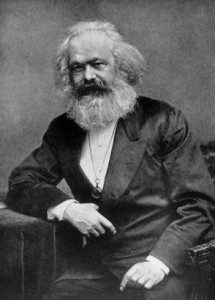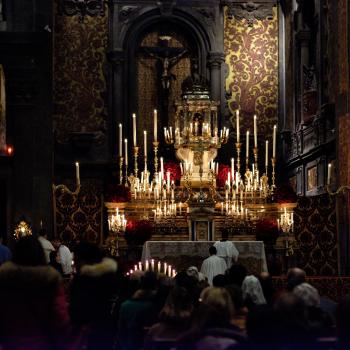Nicholas C. DiDonato
Karl Marx saw religion as an opiate of the poor: it soothed them so that they did not rise up against their capitalist oppressors. For Marx, this short-term relief hardly outweighed the long-term cost of poverty. It turns out that Marx may have been right. Research by political scientists Frederick Solt, Philip Habel, and J. Tobin Grant (all from Southern Illinois University) suggests that greater economic inequality correlates with greater religiosity, a correlation which they argue stems from the rich using religion to discourage wealth redistribution.
If religion merely (economically speaking) provided comfort to the poor, one would expect religiosity to increase among the poor and decrease among the rich as economic inequality increased. After all, according to this theory, the rich would have no need for such otherworldly comforts since they have plenty of worldly comforts. Yet, nations like the US have unsurpassed wealth and high religiosity, an odd combination by this theory.
In order to solve this dilemma, the researchers contend that religion increases among the rich in economies with great wealth disparities because religion serves as a means of social control for them. The wealthy invest in religion so that it propagates among the populace, and of course they will only invest in religions that serve their interests. In a free religious market (that is, there’s no state religion, and so religions must compete for support), having wealthy investors greatly increases the chances of that religion spreading. Furthermore, according to the researchers, religion generally acts as a conservative force and thereby preserves and justifies the current economic and social environment. Countries like the US, then, would have high religiosity and high wealth if they also have high economic inequality.
To test their theory, the researchers analyzed data from World Values Survey (WVS), European Values Survey (EVS), and the Standardized World Income Inequality Database (SWIID). This data spans from 1981 to 2007 and across 76 different societies around the world. The primary variables for religion include (a) whether the survey taker considers himself or herself religious; (b) whether he or she believes in God, (c) an afterlife, (d) heaven, (e) hell, (f) sin, (g) a soul; (h) whether he or she takes time to pray, or (i) attend religious services; (j) whether he or she gets comfort from religion, (k) sees religion as important in his or her life, and (l) sees God as important in his or her life. As for the economic side, the researchers focused on the Gini index, an aggregate measure of economic inequality in different countries.
As expected, economic inequality correlated with a strong increase in religiosity regardless of income. More specifically, economic inequality increased the probability that the typical person considered himself or herself to be religious, held God in high importance for his or her life, believed in an afterlife, and believed in hell. Interestingly enough, in cases of extreme inequality, this model actually predicts that high-income earners will exhibit these four traits. The other religious variables did not influence rich individuals more than poor ones to a statistically significant degree (which includes, with some surprise, receiving comfort from religion).
From these results, the researchers conclude that where economic inequality exists, the poor may lean on it for comfort, but the rich certainly lean on it as a means of social control. This also solves the oddball case of the US: the US has much higher economic inequality than Europe, and so while both places have great wealth, the US has high religiosity because it has high economic inequality.
As the researchers put it, “The findings presented here suggest that one reason is that many wealthy individuals, rather than simply allowing redistribution to be decided through the democratic process as such median-voter models assume, respond to higher levels of inequality by adopting religious beliefs and spreading them among their poorer fellow citizens. Religion then works to discourage interest in mere material well-being in favor of eternal spiritual rewards, preserving the privileges of the rich and allowing unequal conditions to continue.”
So, was Marx right? While rich people living in regions of high economic inequality are more likely to be religious than those living where there’s less inequality, this need not mean that the rich use religion as tool for control over the masses. Further, rich and poor alike receive comfort from religion. Of course, these outcomes are not set in stone. Perhaps we’ll know in another 170 years.
For more, see “Economic Inequality, Relative Power, and Religiosity” in the Social Science Quarterly.












